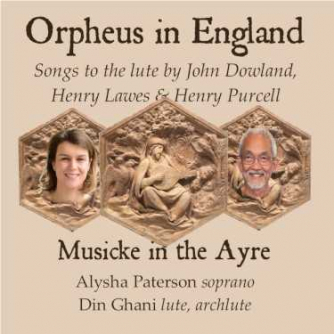Orpheus in England
Songs by English legends John Dowland, Henry Lawes and Henry Purcell
Add to my Calendar 21-10-2023 15:00 21-10-2023 17:00 36 Orpheus in England John Dowland's pioneering 1st Book of Songs of 1597 kicked off a lute song publishing frenzy over the next 25 years, although no other book by him or his contemporaries matched the success of that one. The career of Henry Lawes began around the time of Dowland's death - by the time of his own death in 1662, a couple of years into the Restoration, he had written over 350 songs, making him a worthy successor to Dowland as the English Orpheus. Over the following three decades of the Restoration, this title was pretty convincingly taken over by Henry Purcell. We explore their three very distinct styles with a small selection of pieces from their extensive works. The Charterhouse, London DD/MM/YYYYDetails
The Charterhouse
Charterhouse Square
City of London
London
EC1M 6AN
England
Programme
John Dowland – Time stands still
John Dowland – Clear or cloudy
John Dowland – If my complaints
John Dowland – Robin
John Dowland – His golden locks
Henry Lawes – Sweet, stay a while
Henry Lawes – Slide softly
Henry Lawes – Amidst the myrtles
Henry Purcell – Music for a While
Henry Purcell – Pausanius, Z.585: 'Sweeter than Roses'
Daniel Purcell – Sarabande
Henry Purcell – King Arthur: 'Fairest Isle'
Henry Purcell – Evening Hymn, Z.193
Performers
Alysha Paterson – soprano
Din Ghani – archlute / baroque guitar
Musicke in the Ayre
Programme Note
John Dowland's pioneering 1st Book of Songs of 1597 kicked off a lute song publishing frenzy over the next 25 years, although no other book by him or his contemporaries matched the success of that one. The career of Henry Lawes began around the time of Dowland's death - by the time of his own death in 1662, a couple of years into the Restoration, he had written over 350 songs, making him a worthy successor to Dowland as the English Orpheus. Over the following three decades of the Restoration, this title was pretty convincingly taken over by Henry Purcell.
We explore their three very distinct styles with a small selection of pieces from their extensive works.

 Your events at Classical Events
Your events at Classical Events

